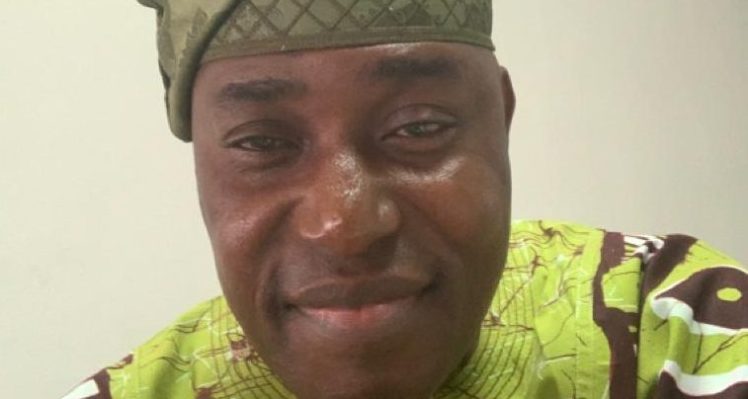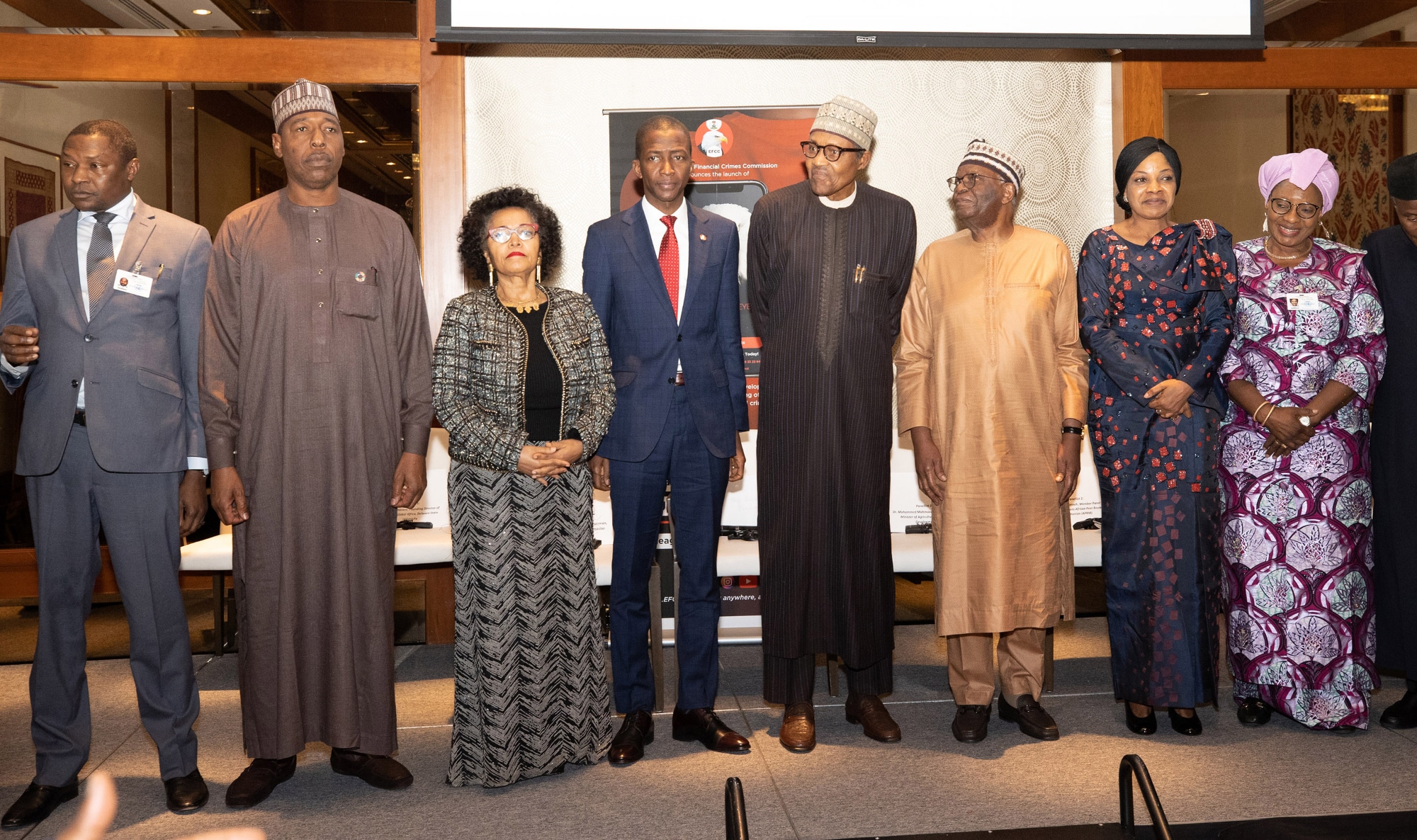Time to serve God of big things..By Martins Oloja
It is quite clear that indeed power has changed from the hand of the lanky, foxy and taciturn one to the hand of a very artful dodger who actually prepared for a strategic state capture.
Yes, it is no longer in doubt that our country’s architecture of governance has been disrupted for another long walk to freedom. I can see that a great deal of feckless arm-twisting is going on in our national capital. Besides, it is getting ‘curiouser and curiouser’ that the governors we want to be the brand ambassadors of federalism, the paradise we often claim we lost and would like to regain for sustainable development are becoming more and more tyrannical.
In some southern states, where the poor are agitated, even some deputy governors also cry. One of them has been locked out of the government house the organic law of the land allocates to him. He is now begging his principal to allow him to work in his office. And sadly, no one cares a hoot about the plight of that deputy governor who now walks alone. So it is with another victim of political recklessness in another state where the deputy governor has been put on a slab for impeachment by his ailing principal who has curiously relocated the capital of his state to his personal residence in a neighbouring state capital. And no one is asking for the action photographs of governance (as a process) of the recuperating governor who should be asking for the mercy of the God that can heal him. Not even a correspondent in the southwest state has contextually reported what that governor who fought his first-term deputy till their last day in office has been hiding in the old capital of the Western Nigeria.
A lot of news treasures, sorry features are hidden in the pacesetter state capital. No word yet from the civil society organisations including the classic ones that fought for the birth of this democracy that is being demonised by democrats. A great deal has happened to democracy via a strange electoral justice system that has redefined sovereignty in Africa’s most populous nation. In Nigeria, our Nigeria, a new elective principle is fast emerging and it is growing luxuriantly like yam tendrils in the rainy season. Now our political leaders need the courts more than the electorate to be in power.
In our dear country, you can’t get to any elective offices except you have the war chest to fight through the labyrinth of the electoral justice system. Here is the new thing, unless most of the big twelve (Justices) cast their ballot for you in their electoral judicial college, the votes of the millions of voters for you will amount to what Shakespeare describes as “a tale told by an idiot, full of sound and fury signifying nothing”.
I hope Benjamin Franklin wasn’t talking about some of our today’s men whom he described as “great talkers, little doers”. Our country is transiting really from darkness to uncertainty as our currency, the symbol of our economic freedom is gravitating towards a precipice that is getting more of our children out of school, signalling another voyage from darkness to darkness. And sadly our state actors who should stay at home to examine the state of their wastefulness and bloated bureaucracy are gallivanting around Asia and Europe to lobby to be part of building bricks of BRICs and G-20 that South Africa joined more than a decade ago. I hope they are re-reading a significant bureaucrat’s recent piece, a warning signal, which sets the tone for more questions, which are pointing to a construct that one hopes it is not “too early to say we are losing it” already after a recent euphoria of the first few weeks after taking oath of office. What can be more concerning than consistent gaffes from the office of the chief executive of the federation from United Arabs Emirate through the state house to the economic capital of America, their America where a mere bell ringing at a stock exchange was inaccurately contextualised by a carelessly exuberant spokesperson.
Even as we see hope that the presidential spokesperson’s gaffes will be taken care of as soon as possible, what the office of the citizen should be concerned with is this: how to stop our leaders from serving the ‘God of Small Things’. The ancient words have taught us to note that ‘there is a time for everything…’
And so, we, the enthusiastic believers in a new Nigeria should begin to inspire our leaders with critical words of hope and encouragement that they should stop serving the ‘God of Small Things’ and begin to learn how to serve the ‘God of Big Things’ immediately. There is nothing esoteric about serving the ‘God of Small and Big Things’. It is simple. I mean here that we have dwelt for so long on this side of the mountain where we serve the God of Small Things that have diminished our stature as the organic giant of Africa and leader of the back race. We have been reported for so long as work in progress. But now we as pilgrims aren’t making steady progress as John Bunyan would have reported.
Let’s explore this construct through ‘The God of Small Things’ by Arundhati Roy. Published in 1997, ‘The God of Small Things’ is Roy’s debut novel and was awarded the 1997 Booker Prize. The novel has been banned, being considered “obscene” due to the sexual relationship between people of different castes. There are a few things to consider when discussing the novel’s title. On one hand, we can concentrate on the main portion of the title and think about the specific individual it may be referring to – the God of Small Things. All things considered, from Ammu’s fantasy, we get the possibility that the ‘God of Small Things’ speaks to Velutha, the man whom she cherishes, regardless of the way that society will never accept them being together. In her fantasy (which happens in Chapter 11 and happens to be entitled “The God of Small Things”), Ammu dreams of a man with one arm who holds her near him: He could only do one thing at a time. “If he held her, he couldn’t kiss her. If he kissed her, he couldn’t see her. If he saw her, he couldn’t feel her.” (205)
When Ammu wakes from her dream, Rahel and Estha are there with her. Ammu notices a curl of shaved wood in Rahel’s hair and knows that the kids have been to see Velutha. She knows even more, “She knew who he was – the God of Loss, the ‘God of Small Things’. Of course she did.” (206) Velutha’s identity as the God of Small Things is fortified toward the end of the book when we find out about Ammu and Velutha’s first romantic encounters. Since they know it’s impossible for their love to exist, they never talk or consider the future, or what one may consider to be the “big things”; they just adhere to the present. Just as we hardly dream of big things here.
Here is the take-away from this story: Most of us including our leaders don’t have any problem imagining a big God who does big things. In fact, we prefer it that way. Our problem seems to be believing in a big God who does big things for us. In Nigeria, our leaders seem to believe only in the Gods of small things. We are a big country always planning small things, dreaming small dreams, thinking only of small things. What is worse, we rake in small revenue and use the proceeds to buy big things for public officers who are less than three percent of the population. Our leaders don’t study Israel, a small start-up country that serves the God of Big Things. Our leaders visit United Arab Emirates, Saudi Arabia, Qatar, small countries with leaders who believe in the God of Big Things. They dream big and the world cannot ignore them. They have invested their oil and gas resources in big businesses across the world. Qatar, a small country of about 2.6 million people just played host to a $220 billion worth of Soccer World Cup without borrowing a dime. They have mostly gas resources. They also have their Almighty ‘Aljazeera’, a world-class cable news channel. They serve the God of big things.
Sadly, when you try to pass through our local and so-called international airports in Nigeria, we see clear manifestation of serving the God of small things. First, you see shameful, tiny restrooms accommodating sometimes only two passengers. Most times, wash-hand basins are leaking and ropes are used to tie some components. When you want to clean your hands, you see cleaners handing miserable toilet rolls to passengers, as no tissue papers will be found where they are to be fixed for use. In the entire North of 19 states, there is just one railway line from Abuja to Kaduna. When you disembark in Kaduna, how do you go from there to capitals of the rest 18 states? There is another magic railway line from Lagos to Ibadan. When you alight from Ibadan, how do you connect other state capitals in South West? There is none connecting anyone from South East to South South. We are an oil producing country but because we serve the God of small things, we import refined products because all our four refineries have for years been unserviceable. Even the economic capital of West Africa, Lagos can’t boast of a mass transit system beyond meretricious BRT system and a Blue-line light rail system being tested in one unnoticeable axis. Only people who serve the God of small things talk about these small things as achievements in this time and age. Let’s continue this story of the God of small and big things next week.



